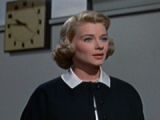Newbie Goes to the Movies
 I've made no secret of the fact that I'm a rabid Augusten Burroughs fan. So it's only fitting that I dragged the Boyf to the Clearview Theater in Chelsea this weekend to see Running with Scissors before the rest of the country got the chance. (Actually, we went twice: It was sold out on Friday night, and we went back early the next evening to catch it before it was too late.)
I've made no secret of the fact that I'm a rabid Augusten Burroughs fan. So it's only fitting that I dragged the Boyf to the Clearview Theater in Chelsea this weekend to see Running with Scissors before the rest of the country got the chance. (Actually, we went twice: It was sold out on Friday night, and we went back early the next evening to catch it before it was too late.)I really liked the movie. There were some clear cinematic digressions from the book -- somewhat necessary to give the film a sense of story (as in, a beginning, middle, and end) where there basically is none since it's a memoir, not a sculpted novel. And in that sense, I agree with the Times review that Augusten's character seems like an observer most of the time to a series of disjointed vignettes. But, honestly, that's how I felt about the book -- that it was scattered and crazy with near-incomprehensible squalor -- and, unlike the Times reviewer, I don't see that as a negative. In the book, Augusten can't be an actor in his own fate (until the end, at least) because as a minor with few human connections in the outside world, he has no choice, so I didn't feel that took away from the movie at all. On the other hand, I've read the book, so this film was more of a complement to what I'd already read -- a sort of DVD extra. The Boyf, who's only read half of Burroughs's memoir Dry (to which I said, "Half?! How could you find it that easy to put down, never to come back to again?!), felt he was left hanging by the film.
Also, memo to the Academy: Please, please, please give Annette Bening her Oscar this year. I know you'll be tempted to give it to Helen Mirren, but in Scissors Bening singlehandedly shows how moving "real" women's roles can be if only Hollywood would write more of them.
And one final thought: At the end of the movie, a teenaged Augusten, completely out of options, says he's leaving and taking the bus to New York. I liked that: The idea of New York as not necessarily utopian, but escapist and full of possibility. I think that concept has been lost in popular culture in the past two years or so. The post 9/11 New York is seen as either ominous or gentrified. Look at the popular conceptualization of New York today: From the shiny veneer of "The Apprentice" and the high fashion of "Project Runway" and The Devil Wears Prada, to the new Republican campaign scare tactics about possible terror attacks to Oliver Stone's movie, those are the images of New York we're dealing with. I'm sure that some teenagers today are still full of hope and look at New York idealistically, but I don't think that's the pervasive sentiment. I'm not even sure if that's my sentiment about New York anymore, and that's why I moved here. But for a second, at the very end, Scissors recaptured that for me, and that's just another reason why I love Burroughs's writing.



0 Comments:
Post a Comment
<< Home